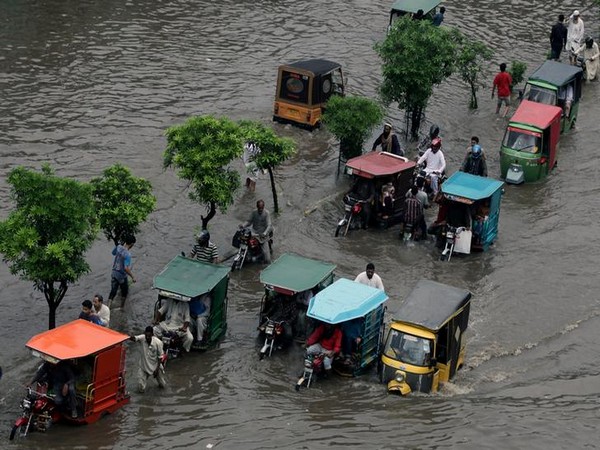
Islamabad: At least 33 million people have been severely affected in Pakistan which is witnessing the worst flooding in a decade due to heavy rainfall caused by climate change.
At least 33 million people have been affected by deadly flooding in Pakistan, the country's climate change minister Sherry Rehman said on Thursday, reported CNN. Since mid-June, 937 people have died from severe rain and flooding across the South Asian country, according to the country's National Disaster Management Authority (NDMA).
Sherry Rehman called the floods "unprecedented" and "the worst humanitarian disaster of this decade."
"Pakistan is going through its eighth cycle of monsoon while normally the country has only three to four cycles of rain," Rehman said. "The percentages of super flood torrents are shocking."
She highlighted, in particular, the impact on the south of the country, adding that "maximum" relief efforts are underway, reported CNN.
The NDMA, Pakistani Army, and the Provincial Disaster Management Authority are working to assist those affected -- but there is a "dire" need for shelter and relief due to the rising number of homeless and displaced families, she said.
The southern province of Sindh, which has been badly hit by the flooding, has asked for 1 million tents, while nearby Balochistan province has requested 100,000 tents, she added.
"Pakistan's priority, at the moment, is this climate-induced humanitarian disaster of epic proportions," Rehman said, urging the international community to provide aid given Pakistan's "limited" resources.
Minister for Planning and Development Ahsan Iqbal separately told Reuters that 30 million people had been affected, a figure that would represent about 15 per cent of the South Asian country's population, reported CNN.
UN agency Office for the Coordination of Humanitarian Affairs (OCHA) said in an update on Thursday that the monsoon rains had affected some 3 million people in Pakistan of which 184,000 have been displaced to relief camps across the country.
Funding and reconstruction efforts will be a challenge for cash-strapped Pakistan, which is having to cut spending to ensure that the International Monetary Fund approves the release of much-needed bailout money, reported CNN.
The NDMA said in a report that in the past 24 hours, 150 kilometres (about 93 miles) of roads had been damaged across the country and more than 82,000 homes were partially or fully damaged.
Since mid-June, when the monsoon began, more than 3,000 kilometres (1,864 miles) of road, 130 bridges and 495,000 homes have been damaged, according to NDMA's last situation report, figures also echoed in the OHCA report.
OCHA also warned that alerts had been issued for floods, river overflows, and landslides in several areas of Pakistan, and heavy rainfall was forecast for the next two days, too, over most of the country.
Rehman said Sindh has received 784 per cent more rainfall this month than the August average, while the province of Balochistan had received nearly 500 per cent more.
Twenty-three districts of Sindh have been declared calamity-hit, she said.